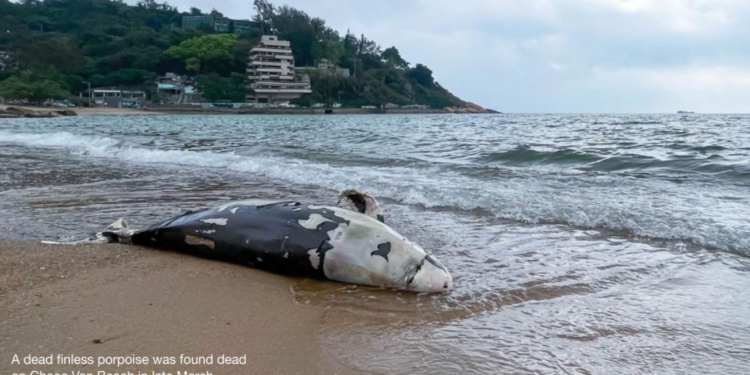Is Ecological Island the Logical Solution to our Waste Problem?
In recent years, the issue of waste management has become an increasingly pressing concern. As our global population continues to grow, the amount of waste we produce has also increased exponentially. Traditional waste management methods, such as landfill sites and incineration, are proving to be unsustainable and environmentally damaging. This has led to the exploration of alternative solutions, one of which is the concept of creating ecological islands.
What is an Ecological Island?
An ecological island, also known as an eco-island or green island, is a self-sustaining community that aims to minimize its environmental impact. These islands focus on achieving zero waste by implementing a combination of waste reduction, recycling, and energy recovery methods. The overarching goal of an ecological island is to create a closed-loop system where resources are used and reused in a sustainable manner.
Benefits of Ecological Islands
There are several key benefits to implementing ecological islands as a waste management solution:
Reduction of landfill waste: By focusing on waste reduction and recycling efforts, ecological islands can significantly decrease the amount of waste sent to landfill sites. This helps to alleviate the strain on existing landfills and reduces the associated environmental and health risks.
Promotion of sustainability: Ecological islands emphasize the importance of sustainable living practices, including the reduction of single-use plastics, responsible consumption, and eco-friendly transportation. This can help to foster a culture of sustainability within the community and inspire others to adopt similar practices.
Energy recovery: Many ecological islands incorporate energy recovery technologies, such as anaerobic digestion and incineration with energy capture, to convert organic waste into renewable energy sources. This not only reduces the reliance on fossil fuels but also helps to offset the carbon footprint of the community.
Economic benefits: By implementing waste reduction and recycling programs, ecological islands can generate economic value from materials that would otherwise be discarded as waste. This can create new opportunities for local businesses and contribute to the overall economic development of the community.
Practical Tips for Implementing Ecological Islands
If you’re interested in implementing ecological island concepts in your community, here are some practical tips to consider:
Conduct a waste audit: Begin by assessing the current waste generation and disposal practices in your community. Identify key areas for improvement and determine the most suitable waste management strategies.
Implement a recycling program: Set up recycling facilities and educate residents about the importance of recycling. Make it as easy as possible for people to recycle by providing convenient collection points and clear guidelines on what can and cannot be recycled.
Encourage composting: Organic waste comprises a significant portion of household waste. Encourage residents to compost their food scraps and yard waste to reduce the amount of organic waste sent to landfill.
Invest in renewable energy: Explore the possibility of integrating renewable energy systems, such as solar panels or wind turbines, to meet the energy needs of the community. This can help to reduce reliance on non-renewable energy sources and minimize the community’s carbon footprint.
Case Studies: Successful Implementation of Ecological Islands
One notable example of a successful ecological island is the Danish island of Samsø. Through a combination of wind energy, solar power, and biofuel production, Samsø has achieved energy self-sufficiency and significantly reduced its carbon emissions. The island’s waste management system also emphasizes recycling and composting, resulting in minimal waste sent to landfill.
First-Hand Experience: The Community Perspective
Incorporating the principles of ecological islands into a community can be a challenging but rewarding endeavour. Residents of ecological islands often report a sense of pride and satisfaction in knowing that they are actively contributing to a more sustainable future. By working together to minimize waste and reduce environmental impact, communities can create a cleaner, healthier, and more resilient environment for future generations.
the concept of ecological islands presents an innovative and promising solution to our waste problem. By embracing the values of sustainability, resource efficiency, and community collaboration, ecological islands offer a practical and effective way to tackle waste management challenges. As we continue to seek sustainable solutions for our ever-growing waste problem, ecological islands serve as a testament to the potential for positive change when we prioritize the well-being of our planet.
Environmental Concerns Over Macau’s Proposed Artificial Island Made of Construction Waste
Macau is currently facing a situation where its only landfill is rapidly reaching capacity, with the towering heap of waste standing at almost 25 meters high. In response to this urgent issue, the Macau government has put forward a proposal to create a reclaimed island using construction waste off Coloane. However, this seemingly innovative idea has been met with strong opposition from environmental activists.
Proposal for an Artificial Island
The government’s proposed solution involves a massive 2.45-square-kilometer island made of construction waste, which is expected to cost approximately MOP15.59 billion. The authorities project that this man-made island would last at least 20 years and have the capacity to handle 35.8 million cubic meters of waste. However, green activists, such as Ken Kuan from the Chief of Macau Ecology, argue that the city should prioritize building waste sorting and recycling facilities rather than creating an “ecological island.”
Environmental Impact and Alternatives
Kuan suggests that the construction waste issue could be addressed effectively with just four waste sorting plants, which would only take up about two hectares. These facilities would cost significantly less to build and could sort most of the construction waste before sending it to mainland China for recycling. However, the government is adamant that as much as 52% of the construction waste must be disposed of domestically, leading to a clash of perspectives on the best approach to tackling the issue.
Concerns Over Wildlife and the Environment
One major point of contention in the proposed project is its potential impact on the environment, particularly on the Chinese white dolphins in the area. Critics argue that the construction of a large-scale reclaimed island could further endanger the habitat of these vulnerable marine mammals. Despite claims from government officials that the artificial island would not significantly interfere with the dolphins’ activity range, environmentalists remain skeptical, especially in light of survey results that indicate the presence of dolphins near the proposed site.
Public Concern and Opposition
The issue has generated significant public concern and opposition, with environmental groups and concerned citizens taking action to halt the project. Given the sensitivity and potential impact on natural resources and wildlife, many are calling for a more cautious approach and a thorough reevaluation of the proposed plan before moving forward.
Impact of Construction Waste Management System
The Construction Waste Management System introduced in 2020 is showing some positive outcomes, with a significant reduction in waste quantity observed in recent years. However, the proposed ecological island remains a contentious issue that will require careful consideration and evaluation to address the concerns raised.
As the debate rages on, it is clear that the development of the artificial island presents a complex and challenging issue that requires a balanced and well-considered approach, taking into account the concerns of environmental activists and the potential impact on the region’s wildlife and natural resources.






